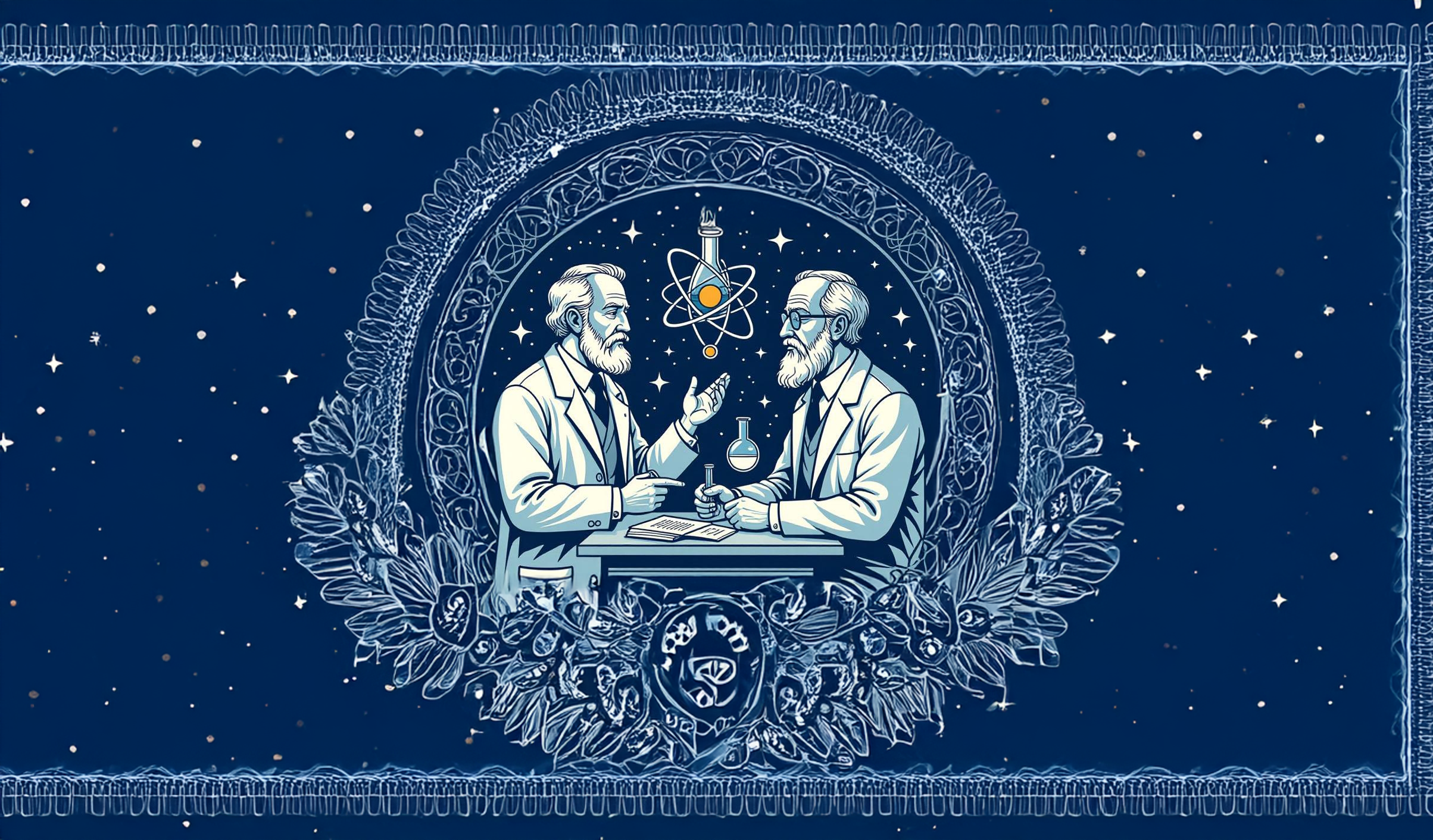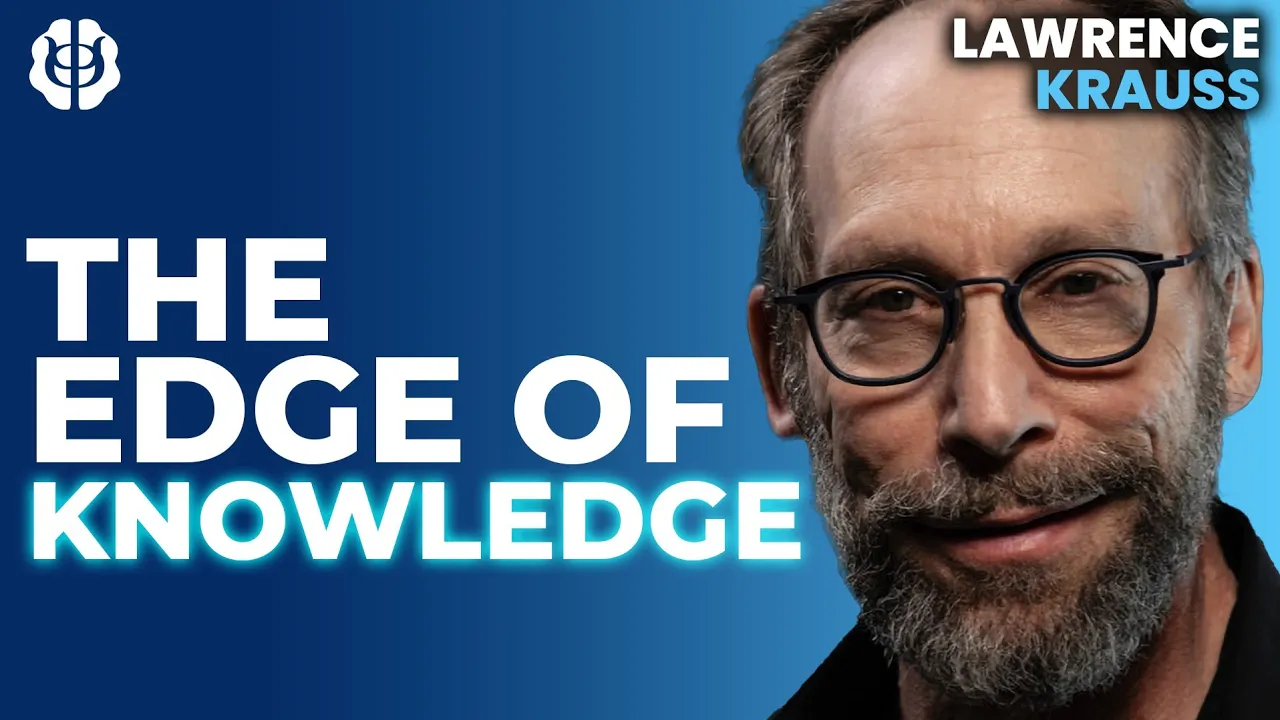Lawrence Krauss on Science vs. Philosophy: A Necessary Divide?

This blog post delves into Lawrence Krauss's perspective on the relationship between science and philosophy. In an age dominated by scientific discoveries, does philosophy still hold relevance, or has science effectively surpassed it? We'll examine Krauss's arguments, the counterarguments, and ultimately, the importance of both disciplines in understanding our universe and our place within it. This discussion directly stems from our latest podcast episode, where we had the distinct pleasure of exploring these fascinating topics with Dr. Krauss himself. Join us as we unpack the complexities of science, philosophy, and the enduring quest for knowledge.
Who is Lawrence Krauss?
Lawrence Krauss is a distinguished theoretical physicist, cosmologist, and author renowned for his contributions to our understanding of the universe. He has held professorships at numerous prestigious institutions, including Arizona State University, where he founded the Origins Project. Krauss is also a prolific science communicator, known for his ability to explain complex scientific concepts to a broad audience through his books, articles, and public lectures. He is the author of over 500 publications, as well as numerous popular articles on physics and astronomy. He received undergraduate degrees in both Mathematics and Physics at Carleton University. He received his PhD in Physics from MIT, then joined the Harvard Society of Fellows. He was Assistant Professor & Associate Professor at the faculty of the departments of Physics and Astronomy at Yale University. He was Ambrose Swasey Professor of Physics, Professor of Astronomy at Case Western Reserve University, Foundation Professor in the School of Earth and Space Exploration and Physics Department, and Inaugural Director of the Origins Project at Arizona State University. During his career, he has held or holds professorships or distinguished visiting appointments at institutions including University of Chicago, Cambridge University, Boston University, University of Zurich, University of California at Santa Barbara, Lawrence Berkeley Laboratory, CERN, Australian National University, and New College of Humanities.
The Core Argument: Has Science Surpassed Philosophy?
The central question explored in our podcast episode, and in many of Krauss's writings, is whether philosophy remains essential in the face of scientific progress. Krauss argues that many traditional philosophical inquiries have been effectively superseded by scientific investigations. He suggests that questions once solely within the domain of philosophy, such as the nature of reality and the origin of the universe, are now being addressed and answered by science using empirical evidence and rigorous methodologies. This perspective isn't necessarily an outright dismissal of philosophy, but rather a call for it to adapt and potentially redefine its role in the pursuit of knowledge. Science's strength, in Krauss's view, lies in its ability to make testable predictions and provide verifiable explanations, something he sees as lacking in much of traditional philosophical discourse.
Exploring the Mind-Body Problem and Consciousness
The mind-body problem, which asks how our subjective experiences arise from physical processes in the brain, is a classic philosophical puzzle. Krauss, and many other scientists, approach consciousness as a scientific question, believing that neuroscience and related fields will eventually provide a complete explanation. He suggests that by studying the neural correlates of consciousness – the specific brain activity associated with conscious experiences – we can gradually unravel the mystery of how consciousness emerges. While acknowledging the current limitations of our understanding, he expresses optimism that scientific progress will eventually demystify consciousness, rendering philosophical speculation less relevant. However, philosophers often argue that science can only describe the "what" and "how" of consciousness, but not the "why" of subjective experience, the so-called "hard problem of consciousness".
Free Will and Reality: A Scientific Perspective
The concept of free will, the ability to make choices unconstrained by external forces, is another area where science and philosophy intersect. Krauss, drawing on physics and neuroscience, often presents a deterministic view of reality, suggesting that our actions are ultimately determined by physical laws and prior events. This perspective challenges the traditional notion of free will, implying that our sense of agency might be an illusion. He acknowledges the philosophical implications of this view but argues that scientific evidence increasingly supports the idea that our choices are not as free as we perceive them to be. This deterministic viewpoint aligns with the idea that the universe operates according to fixed physical laws, leaving little room for genuine free will. However, the debate continues, with compatibilists arguing that free will and determinism can coexist.
The Role of New Atheism
Lawrence Krauss is often associated with the "New Atheism" movement, which advocates for a more assertive and public criticism of religion. This perspective stems from a belief that religious claims should be subjected to the same scrutiny as any other claim about the world. Krauss argues that science provides a more reliable framework for understanding reality than religious dogma. While this stance has drawn criticism, it reflects a broader commitment to evidence-based reasoning and a rejection of unsubstantiated beliefs. The "New Atheism" movement, characterized by figures like Richard Dawkins and the late Christopher Hitchens, emphasizes the importance of critical thinking and the separation of church and state. Krauss's involvement in this movement highlights his belief in the power of science to illuminate the world and challenge traditional belief systems.
Known Unknowns: The Edge of Knowledge
The concept of "known unknowns," popularized by Donald Rumsfeld, refers to things we know we don't know. In a scientific context, it highlights the boundaries of our current understanding. Krauss emphasizes the importance of acknowledging these limits and actively pursuing answers to these unanswered questions. He believes that the most exciting scientific discoveries often arise from exploring the "edge of knowledge," pushing the boundaries of what we currently understand. This involves developing new theories, conducting innovative experiments, and embracing uncertainty. By focusing on the "known unknowns," scientists can identify the most promising avenues for future research and make significant breakthroughs. This aligns with the scientific method, which emphasizes continuous questioning and revision of existing knowledge.
Science Writing: Communicating Complex Ideas
Krauss is a highly successful science writer, known for his ability to communicate complex scientific ideas to a broad audience. He stresses the importance of clear and engaging communication in promoting scientific literacy and fostering public appreciation for science. Effective science writing requires breaking down complex concepts into accessible language, using analogies and metaphors to illustrate abstract ideas, and connecting scientific discoveries to everyday life. By making science more understandable and relatable, writers like Krauss play a crucial role in inspiring the next generation of scientists and promoting informed decision-making on scientific issues. Good science writing also involves addressing misconceptions and countering misinformation, ensuring that the public has access to accurate and reliable information.
UAPs and Skepticism: A Scientific Approach
The topic of Unidentified Aerial Phenomena (UAPs), formerly known as UFOs, has gained increasing public attention in recent years. Krauss approaches the topic with skepticism, emphasizing the importance of rigorous evidence and critical thinking. He cautions against jumping to extraordinary conclusions without sufficient evidence and encourages a scientific investigation of UAPs based on verifiable data and testable hypotheses. While acknowledging the possibility of unexplained phenomena, he stresses that extraordinary claims require extraordinary evidence. He also points out the potential for misidentification of known objects, such as weather balloons or military aircraft, as well as the influence of psychological factors in shaping perceptions of UAPs. His approach reflects a commitment to the scientific method and a healthy skepticism towards unsubstantiated claims.
The Claim: Science Over Philosophy
Krauss's position, as reflected in our podcast episode, leans towards the idea that science has, in many ways, superseded philosophy in addressing fundamental questions about the universe and our existence. He argues that science provides a more reliable and verifiable means of understanding the world, based on empirical evidence and rigorous testing. While acknowledging the historical contributions of philosophy, he believes that its role has diminished as science has advanced. He suggests that many philosophical inquiries have become unproductive, focusing on abstract concepts that lack empirical grounding. This perspective is not universally shared, and many philosophers argue that philosophy continues to play a vital role in critical thinking, ethical reasoning, and exploring questions that science cannot yet answer.
The Impact of AI on Science and Philosophy
Artificial intelligence (AI) is rapidly transforming both science and philosophy. In science, AI is being used to analyze vast datasets, develop new models, and accelerate the pace of discovery. In philosophy, AI raises fundamental questions about consciousness, ethics, and the nature of intelligence. Krauss acknowledges the potential of AI to revolutionize science but also cautions against uncritical enthusiasm. He emphasizes the importance of understanding the limitations of AI and ensuring that it is used responsibly. The development of AI also challenges our understanding of what it means to be human, raising profound philosophical questions about the nature of consciousness, free will, and moral responsibility. The intersection of AI, science, and philosophy is a rapidly evolving field with significant implications for the future of humanity.
The Story of the Universe: A Scientific Narrative
Krauss emphasizes the power of science to tell a compelling and coherent story of the universe, from the Big Bang to the present day. This scientific narrative is based on empirical evidence, mathematical models, and rigorous testing, providing a framework for understanding the origin, evolution, and structure of the cosmos. He believes that this scientific story is more reliable and informative than traditional myths and religious narratives. By understanding the scientific story of the universe, we can gain a deeper appreciation for our place in the cosmos and the interconnectedness of all things. This narrative also inspires a sense of wonder and curiosity, driving further scientific exploration and discovery. Krauss's book, "A Universe from Nothing," exemplifies his ability to communicate this scientific story in an accessible and engaging way.
The Origins Podcast and Foundation
Lawrence Krauss founded the Origins Project Foundation and hosts the Origins Podcast, both dedicated to exploring fundamental questions about the universe and our place within it. The Origins Project Foundation supports scientific research, education, and outreach, promoting a deeper understanding of science and its impact on society. The Origins Podcast features conversations with leading scientists, philosophers, and thinkers, exploring a wide range of topics from cosmology and neuroscience to ethics and artificial intelligence. Both the foundation and the podcast serve as platforms for engaging the public in scientific discourse and promoting critical thinking. You can explore the Origins Podcast on YouTube and learn more about the Origins Foundation on their website.
Krauss's Relationship with Richard Dawkins
Lawrence Krauss has a long-standing relationship with Richard Dawkins, another prominent figure in the "New Atheism" movement. Both Krauss and Dawkins are outspoken critics of religion and advocates for science and reason. They have collaborated on various projects, including public debates and educational initiatives. Their shared commitment to scientific skepticism and their willingness to challenge traditional beliefs have made them influential voices in the public discourse on science and religion. Their relationship reflects a broader community of scientists, philosophers, and intellectuals who are dedicated to promoting evidence-based reasoning and critical thinking.
The Importance of Changing One's Mind
A crucial aspect of the scientific process is the willingness to change one's mind in light of new evidence. Krauss emphasizes the importance of intellectual humility and the ability to abandon previously held beliefs when confronted with contradictory data. This flexibility is essential for scientific progress and distinguishes science from dogmatic belief systems. He argues that scientists should be open to revising their theories and models as new information becomes available. This willingness to change one's mind is not a sign of weakness but rather a testament to the power of reason and the pursuit of truth. It reflects a commitment to evidence-based decision-making and a willingness to adapt to new discoveries.
Conclusion: The Necessary Coexistence of Science and Philosophy
While Lawrence Krauss's perspective highlights the significant advancements and capabilities of science, particularly in addressing questions once considered solely within the realm of philosophy, our discussion ultimately underscores the necessity of a continued dialogue between these two disciplines. Science provides us with empirical data and testable theories, while philosophy offers frameworks for interpreting that data, exploring ethical implications, and addressing questions that may lie beyond the current reach of scientific investigation. As we explored in our recent podcast episode, the quest for knowledge requires both the rigor of scientific inquiry and the critical reflection of philosophical thought. They are not mutually exclusive but rather complementary approaches to understanding ourselves, our universe, and our place within it. The future lies in fostering a collaborative environment where science and philosophy can inform and enrich each other, leading to a more comprehensive and nuanced understanding of reality.








